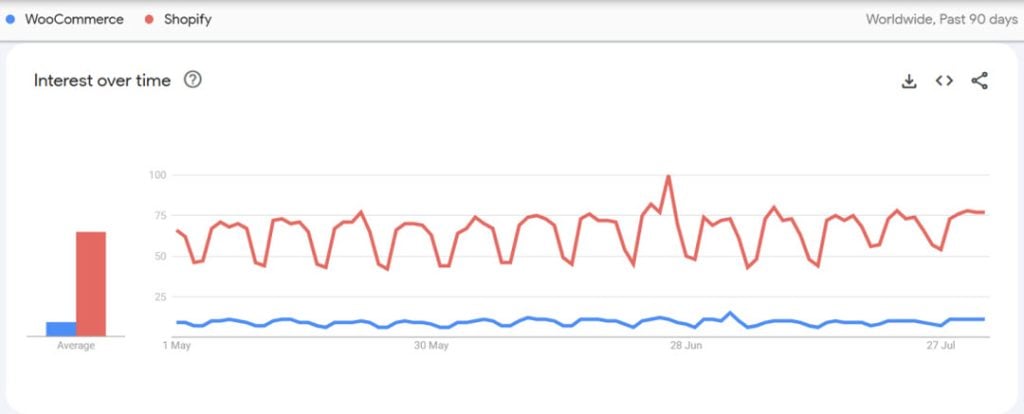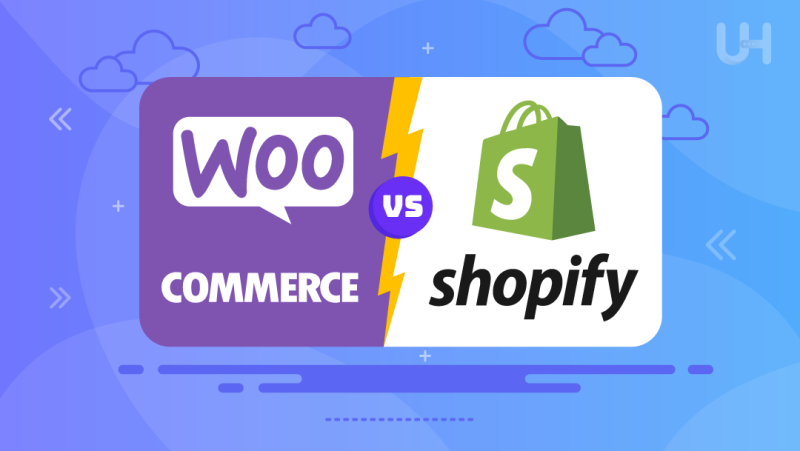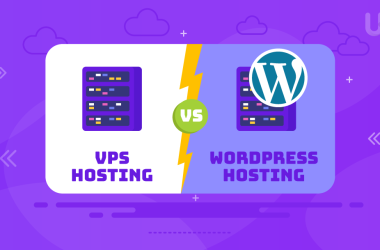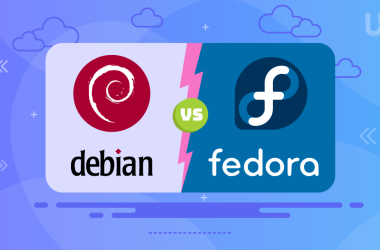Selecting the correct platform can be the difference-maker between success and failure for your online venture. Are you searching for the best eCommerce platforms to set up your online store? Then you’ve come to the right place.
In this article, we compare WooCommerce vs Shopify, the two most powerful eCommerce solutions on the market, and help you choose between them. So, stay tuned to find out which is the better choice for your business.
WooCommerce and Shopify are two of the most used eCommerce platforms in 2025. They provide an extensive list of tools to help you set up, manage, and run your online store from a unified dashboard.
Both have their share of advantages and disadvantages. Let’s analyze their key features, pros, and cons to help you make an informed decision.
Key Takeaways
Choosing between Shopify and WooCommerce for your WordPress website in 2025 is all about your own needs, technical ability, and budget. Here are 8 basic takeaways:
- Platform Type: WooCommerce is an open-source WordPress plugin that makes your current WordPress website an eCommerce website.
- Cost Structure: WooCommerce itself is a cost-free plugin, Shopify has basic monthly subscription tiers ($25-$399+ USD). Which include hosting, security, and plenty of features in the box.
- Ease of Use & Technical Ability: It has an extremely easy-to-navigate platform and does the technical back end for you. WooCommerce is more hands-on effort.
- Customization and Control: WooCommerce offers unprecedented customization. You can entirely dictate your site’s code, database, and look.
- Scalability: Shopify is built to scale and scales. Company and requires more labor-intensive optimization with more traffic.
- SEO & Marketing: As a WordPress plugin, WooCommerce takes advantage of WordPress’s strong SEO capabilities and plays nicely with strong SEO plugins.
- Support: Shopify offers 24/7 support, which could be a massive benefit to customers who need something yesterday.
- Security: With WooCommerce. Installing an SSL certificate, and configuring security plugins and procedures.
You already possess a nicely established WordPress website. With an effective content strategy and need to incorporate eCommerce functionality. WooCommerce is more suitable for individuals who want complete control, are technically savvy (or have developers in their hands), and like constructing their store on the WordPress platform.
Shopify vs WooCommerce: A Brief Overview
WooCommerce is an open-source plugin that lets you turn your WordPress website into a fully functional online store. The plugin is user-friendly, has an intermediate learning curve, packs several powerful features, and offers unlimited customization options.
Shopify, on the other hand, does not rely on a third-party platform, like WordPress, to operate. To create a Shopify store, you do not need a WordPress website. Shopify provides the complete package, from hosting and domain to customization, analytics, SEO, payment, inventory management, etc. Let’s walk you through the differences in more detail.
What is WooCommerce?

WooCommerce is an open-source, free plugin for WordPress websites. It allows users to turn their current WordPress site into a working online store. Making it an organic option for users already comfortable in the WordPress environment. Released in 2011, WooCommerce was one of the most widely used ecommerce solutions globally, managing millions of online businesses.
Best of all, WooCommerce takes advantage of the rich WordPress ecosystem. Customers can integrate ecommerce with blogging, SEO solutions, and marketing plugins to create a formidable online presence without ever leaving the WordPress environment.
What is Shopify?

Shopify is a hosted, cloud-based online ecommerce platform where anyone can build an ecommerce store without technical skills. Shopify is not based on WordPress like WooCommerce and is an all-in-one platform that hosts everything from inventory to web hosting right out of the box. Launched in 2006, Shopify has become one of the top ecommerce platforms in the world.
Customers have access to a range of professional-looking templates and control over their store via an easy-to-use dashboard that takes care of everything from orders to customer details. With little setup time and an emphasis on simplicity, it’s a perfect solution for customers who seek an efficient way to open and operate an online shop.
WooCommerce vs Shopify: Which Ecommerce Store is More Popular?

In terms of popularity. Both Shopify and WooCommerce are front-runner ecommerce platforms. Though they appeal to slightly different crowds. WooCommerce, as a WordPress plugin, is most commonly used by individuals who already have WordPress sites in operation and would simply like to integrate ecommerce functionality into the site.
Shopify, In contrast, is in control of the fully hosted ecommerce market. It has more than 2 million active stores worldwide and is still expanding as quickly as ever, particularly among those who want a less complicated, all-in-one solution. Its simplicity and professional help make it extremely appealing to small business owners, businesses who are just starting out, and non-techies.
WooCommerce: Key Features and Functionalities
WooCommerce is the most used WordPress eCommerce plugin that can turn any WP application into a fully functional eCommerce store. Here are its key features.
- Easy to Use: WooCommerce has a user-friendly interface and you don’t need technical know-how to set up and operate your online store.
- Fully Customizable: WooCommerce offers a high level of customization. You can use a wide range of themes and plugins such as WooCommerce checkout field editor to personalize your online store.
- Simplified Product Management: From adding new products to setting prices and organizing categories, you can manage your store from a single dashboard.
- Multiple Payment Options: WooCommerce supports all the popular payment options, such as PayPal, Stripe, debit/credit cards, bank transfers, etc.
- Plugin Compatibility: WooCommerce is compatible with third-party WordPress widgets. For example, you can optimize your online store using a performance plugin or improve SERP rankings with the help of an SEO plugin.
- Built-in Analytics and Reporting: WooCommerce comes with built-in analytics and reporting tools to help you track sales, monitor customer behavior, and make data-driven decisions.
Elevate Your Business with WooCommerce Hosting
Whether you’re a business seeking reliability or an individual embarking on an online venture, our LiteSpeed WooCommerce Hosting solutions offer the power and flexibility you need to set up and manage your online store.
Shopify: Key Features and Functionalities
Shopify is a comprehensive eCommerce services suite that helps business owners set up, manage, operate, and grow their online stores. Here are its key features.
- Fully Hosted Solution: Shopify is a standalone application, meaning it offers a complete range of services necessary to set up an online store, from hosting and security to technical maintenance.
- Fully Customizable: Shopify comes with several stunning paid and free themes that you can personalize to fit your brand’s aesthetics.
- Unified Product Management: Shopify has a broad selection of tools to help you track inventory, set pricing, and manage products conveniently.
- SEO and Marketing Tools: Shopify comes with built-in SEO and marketing tools to help you optimize your online store and run effective marketing campaigns.
- Built-in Analytics and Reporting: You can easily manage sales, track customer behavior, and make data-backed business decisions using Shopify’s built-in analytics and reporting tools.
- Comprehensive App Store: The Shopify app store comprises numerous powerful tools that enhance and extend the platform’s functionalities. From analytics and marketing to SEO, inventory management, customer service, etc., the list is pretty extensive.
WooCommerce vs Shopify: Comparing the Differences
When choosing between Shopify or WooCommerce, you must consider several factors. Each platform has specific uses, benefits, and drawbacks. Let’s walk you through the differences in more detail.
Ease of Use
As the owner of an online store, your most important asset is your time. You need to spend your time on important business functions, like receiving customer input, fulfilling orders, answering questions, and dealing with vendors. Doing this means having an e-commerce platform that is easy to use and easy to manage.
Ease of Use of WooCommerce
WooCommerce is a self-hosted, open-source solution, and its initial configuration demands greater technical acumen compared to a hosted solution. One needs to first obtain a domain name and a hosting company, install WordPress, and then the WooCommerce plugin. While this works for individuals who are familiar with the WordPress environment, it poses a high learning curve to complete beginners. You also have to handle your own security, backup, and updating for WordPress as well as all of your plugins and themes.
Ease of Use of Shopify
Shopify is renowned for its user-friendliness and streamlined setup process. As a hosted platform, it handles all the technical aspects for you, including hosting, security, and software updates. A user can create a Shopify account and have a basic store ready to accept payments in a matter of minutes.
The platform’s intuitive, drag-and-drop interface makes it easy for anyone, regardless of technical skill, to design their storefront and add products. The platform gives you total freedom to choose a suitable dedicated, shared, or VPS hosting plan. You can also combine WooCommerce with all WordPress plugins and responsive themes.
Winner
Shopify is hands-down the most user-friendly. Its hosted, all-in-one model takes the technical hassle out of operating an online store so that merchants can concentrate on selling their goods. The setup wizard, easy-to-use dashboard, and integrated features make it ideal for newbies or individuals who prefer not to worry about anything.
Scalability
For any online business, scalability is very important for long-term growth. A site that isn’t able to manage an increasing volume of orders and more website traffic can stall your business’s success. Here’s a comparison of how WooCommerce or Shopify fare with respect to scalability.
Scalability of WooCommerce
WooCommerce, as it is open-source, provides a great level of flexibility and control when it comes to scalability. The platform itself places no hard limits on the number of products, orders, or transactions it can support. The scalability of a WooCommerce store is mostly up to you and your hosting environment. For a small business, a shared hosting package may be adequate, but with increased traffic and revenue, you’ll find yourself needing to switch to more robust hosting, either a VPS, dedicated hosting plan, or managed cloud solution.
You have the ability to select a hosting company that will accommodate your business’ particular requirements. For example, if you want to convert your online store to an open marketplace, you can do so with a premium WooCommerce multivendor plugin. Shopify, however, has the feature built-in, so you don’t need a third-party widget for the job.
Scalability of Shopify
Shopify’s hosted, one-stop-shop approach means scalability becomes essentially hands-off and hassle-free. The platform is based on a strong, cloud-based distributed infrastructure that can support massive traffic surges and high transaction rates without you needing to lift a finger. This is a big benefit for companies that enjoy seasonal rushes or go viral. As your business expands, you can merely move to a more advanced plan such as the mid-plan Shopify or the enterprise Shopify Plus to enjoy more premium features and reduced transaction fees.
Winner
Shopify wins for scalability, especially for the typical business owner. Its hosted, one-stop-shop solution offers a predictable, hassle-free scaling track record ready to accommodate growth from day one. You don’t need to worry about the technical details of server management and optimization; you can just bump up your plan as your business grows.
Integrations and Add-ons
When your online shop expands, you’ll require adding more features to automate the process. Both WooCommerce and Shopify have lots of integrations and add-ons, but there are some differences in their approach.
Integrations and Add-ons of WooCommerce
The WooCommerce platform is based on the tremendous power and versatility of WordPress. This provides it with access to an astonishing quantity of plugins and extensions, both premium and free. The WooCommerce marketplace proper, as well as the broader WordPress plugin directory, provides thousands of choices for shipping and payments right through to marketing and security.
For example, in Woocommerce, you can use plugins like CTX feed to generate feed and integrate with more marketing channels like Google Shopping and Facebook compared to Shopify.
Shopify Integrations and Add-ons
Shopify integrations are handled through its own app store, which supports thousands of third-party apps. These are selected and approved by Shopify, making them of a better quality, reliability, and integration level with the platform. Although the number of apps might be fewer than the number of plugins for WooCommerce, the Shopify App Store offers an orderly and reliable set of choices. Shopify’s platform is designed to be user-friendly, and most apps can be installed and configured with just a few clicks, making it easy for non-technical users to add new functionalities.
Winner
There is no single winner here, as the best option depends on your priorities. WooCommerce takes the prize for sheer numbers and adjustability. If you require a specific or special feature and have the technical expertise. Shopify takes the prize for ease of use and dependability. Its carefully vetted App Store provides a solid and easy means of adding functionality without the technical hassle.
Support
The extent of support you get from your e-commerce platform is vital in ensuring the running of your online store smoothly. This is a comparison between the support provided by WooCommerce and Shopify.
Support of WooCommerce
WooCommerce being an open-source platform does not provide one-stop, centralized customer support staff. Support is more of a decentralized effort. If you run into a problem, the best place to start is the very comprehensive WooCommerce documentation and the huge community forums, where you’ll be able to find solutions to well-known issues or seek assistance from other users and programmers.
Support of Shopify
Shopify, being an all-in-one hosted solution, provides comprehensive and centralized customer support. All Shopify plans include 24/7 support through various channels, including live chat, email, and, for some plans, phone support. This dedicated support team is equipped to assist with any issues related to your Shopify store, from technical problems to questions about features.
Winner
Shopify is the overwhelming winner in terms of support. The presence of 24/7 centralized support in multiple channels means peace of mind and a huge benefit for entrepreneurs who prefer not to tinker with technical issues as much. Although the community and documentation for WooCommerce are strong, the disparate nature of its support can be a huge turn-off for most users, particularly those who are not technical.
Cost
When establishing an online store, cost is a primary consideration. So, how do the costs of Shopify versus Woocommerce compare? The answer is that it depends on your specific needs. WooCommerce itself is a cost-free plugin, so it appears to be the more affordable one. Shopify, on the other hand, offers a one-stop solution with plans that usually cost between $25 and $399 per month.
Cost of WooCommerce
WooCommerce is an open-source, free WordPress plugin, so the starting cost of receiving the software itself is zero. But that’s where things get started. Since it’s a self-hosted platform, you’re going to be in charge of a number of other expenses. Most importantly are hosting and a domain. Hosting fees can go as low as a few dollars per month for a low-end, shared hosting plan to hundreds or thousands of dollars for a high-traffic, managed WooCommerce plan. A domain name usually costs $10-$20 per annum.
Cost of Shopify
Shopify is a subscription-based service, and Shopify provides an all-in-one solution where hosting, security, and most features are combined under one price per month. This model gives a clear and predictable price upfront. Shopify’s standard plans for small to medium-sized enterprises are Basic, Shopify, and Advanced, with monthly fees usually varying between approximately $25 and $399. These come with unlimited products, 24/7 support, and a range of e-commerce tools, with more sophisticated features and lower transaction costs on higher-priced plans.
Winner
WooCommerce takes the prize for affordability since WooCommerce is an affordable option as a free plugin without transaction fees. Still, it’s important to factor in extra costs like hosting, themes, and plugins. Shopify has flat-rate pricing plans, but the overall cost increases with business development and can mean paying for unused resources.
Conclusion
In the head-to-head comparison between WooCommerce vs Shopify, clearly there is no clear winner. Both eCommerce platforms have their strong suits and shortcomings. So, your choice ultimately boils down to the unique requirements of your business. To summarize, if you own a small business, Shopify offers greater convenience. If you need scalability, flexibility, and control, WooCommerce will be the better choice.
Plan to set up your eCommerce store? Choose Ultahost’s eCommerce Hosting Services today. Enjoy unlimited bandwidth, SSD and NVMe storage, and built-in security updates, starting at just $3.29/month.
FAQ
WooCommerce vs Shopify: Which should I choose?
The best eCommerce platform is the one that best meets your unique business requirements. We compared the key features of WooCommerce vs Shopify to help you choose.
WooCommerce vs Shopify: Which is more powerful?
Both WooCommerce and Shopify provide comprehensive eCommerce solutions. While Shopify is an all-in-one service provider, WooCommerce provides greater customization options.
How is WooCommerce different from Shopify?
WooCommerce is an open-source WordPress plugin. The extension can only operate in the WordPress ecosystem. Shopify, on the other hand, is a standalone platform, meaning it offers its own hosting, domain, and tools to help you set up and build your eCommerce store.
Can I use Shopify with WordPress?
You can integrate Shopify’s Buy Now button into your WordPress site. Users will be redirected to your Shopify cart to complete the transaction. However, the integration can be more complicated than WooCommerce integration.
Shopify vs WooCommerce: Which is more flexible?
WooCommerce offers more flexibility hands down. You can choose your own hosting provider and domain, download third-party plugins, and customize every element of your online store.








